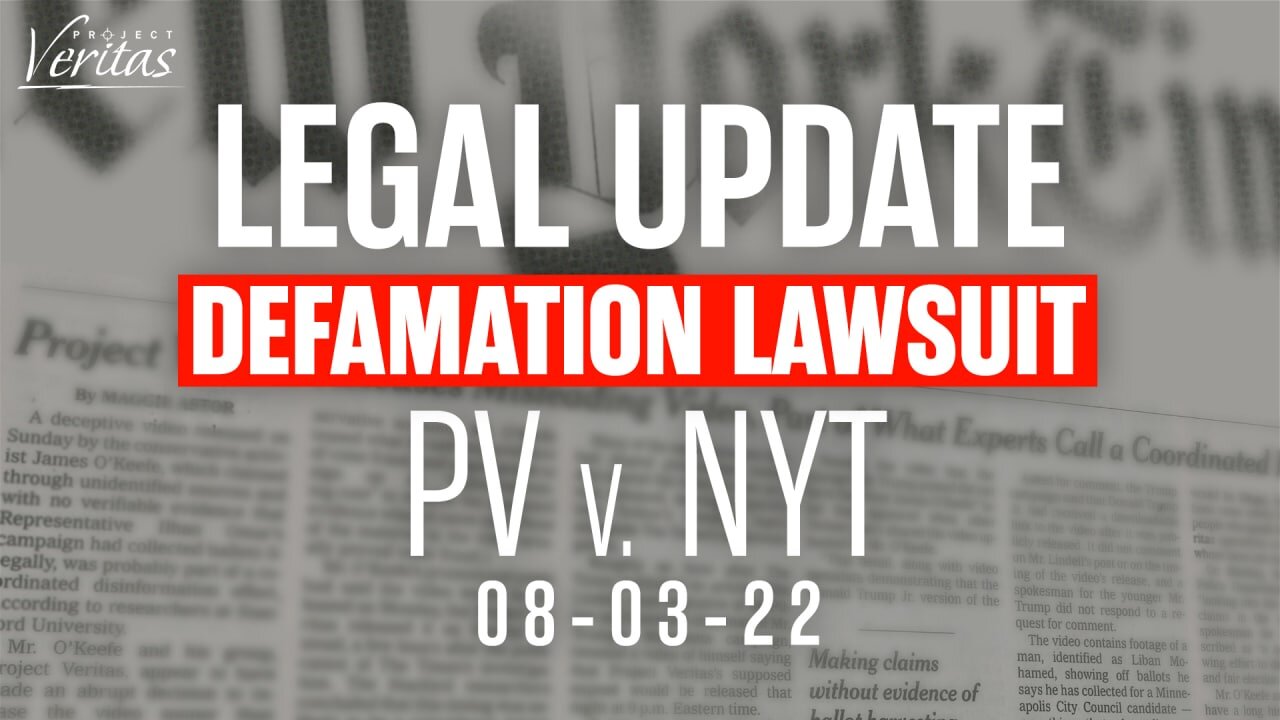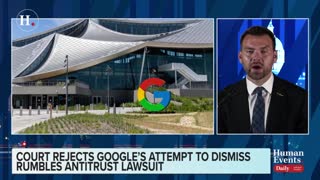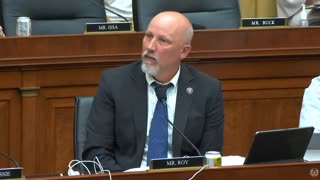Premium Only Content

NYT Complains Court Used ‘Erroneous Premise’ in Attempt to Justify Litigation Misconduct
NYT Complains Court Used ‘Erroneous Premise’ in Attempt to Justify Litigation Misconduct as Justice’s Ruling Nears
• Back in November 2021, The New York Times published memos written by Project Veritas’ lawyers in the very defamation case against The New York Times. On Christmas Eve 2021, Justice Charles Wood of the NY Supreme Court ordered the Times to return the confidential legal memos, calling the Times’ reporting, “hit and run journalism” which necessitated “court intervention to protect the integrity of the judicial process.”
• In an appeal, The New York Times argued the New York Supreme Court’s order is, “an extraordinary prior restraint,” a term of art for when the government attempts to take actions to prevent speech.
• In a new video breaking down the case, Project Veritas Founder and CEO James O’Keefe cites the non-profits attorney, Libby Locke, who argues “In sum, the Supreme Court concluded, correctly, that The Times’ own representations … ‘unquestionably’ demonstrated ‘concomitant prejudice to [Veritas].’
• A ruling is expected soon.
[NEW YORK – Aug 3, 2022] The Appellate Division is expected to rule soon on whether the lower court was right to prevent the New York Times from republishing the privileged legal memos of their litigation opponent.
The New York Times is appealing a New York Supreme Court order issued on Christmas Eve which required them to return and cease any republication of legal memos written by Project Veritas’ attorneys who historically defeated the paper’s attempts to dismiss a defamation suit brought on by Project Veritas.
In their appeal, The New York Times argued the lower court’s order violated the First Amendment and was “an extraordinary prior restraint” while also arguing they get to publish the privileged memos “even if the Times acted improperly.”
In a new video breaking down the case, Project Veritas Founder and CEO James O’Keefe cited Veritas’ attorney, Libby Locke, who hit back against these claims:
The only thing ‘extraordinary’ about this dispute is the conduct of the [New York] Times. The true gravamen of The Times’ argument is that, as a media outlet, it is entitled to special treatment and that it should not be subject to the same rules of practice and conduct that any other litigant appearing before the New York Supreme Court is held to.
The NYT also tried to argue the memos had no relevance to the ongoing litigation, another claim corrected by Locke in the latest response brief:
‘The Times’ story also specifically referenced the ongoing litigation between The Times and Veritas and stated that the privileged memoranda gave The Times ‘new insight’ into the ‘workings’ of Project Veritas and how it uses tactics ‘outside of mainstream reporting techniques’…In moving to dismiss Veritas’ defamation complaint, the Times asserted as a defense that Veritas is a libel-proof plaintiff because of its history of using ‘sting operations and entrapment tactics’
A ruling in the case is expected soon.
-
 1:14
1:14
KGUN
2 years agoCourt rejects death-row inmate's second attempt at delaying execution
391 -
 2:09
2:09
The Post Millennial Live
2 years agoJack Posobiec on court rejecting Google’s attempt to dismiss Rumble’s antitrust lawsuit
1.6K9 -
 1:44
1:44
The Post Millennial Live
2 years agoChip Roy dismantles Jerry Nadler's attempt to justify the Democrats' position on gun restrictions
4228 -
 0:54
0:54
Judicial Watch
2 years agoSupreme Court Justice Assassination Attempt! Intimidation Campaign Encouraged by Biden WH & Congress
3197 -
 1:03:57
1:03:57
Kyle Fortch
3 hours ago $0.70 earnedDJ Chill: DJing For Jelly Roll, SOLD OUT Tour, Performing at Hometown Arena | THE ONE SHEET S1E4
10.2K3 -
![The Deep State Spied On Trump & Sabotaged 2020 Operation To Oust Maduro [EP 4440-8AM]](https://1a-1791.com/video/fwe1/94/s8/1/F/5/k/Z/F5kZx.0kob-small-The-Deep-State-Spied-On-Tru.jpg) 4:05:26
4:05:26
The Pete Santilli Show
14 hours agoThe Deep State Spied On Trump & Sabotaged 2020 Operation To Oust Maduro [EP 4440-8AM]
20.5K3 -
 41:53
41:53
Rethinking the Dollar
1 hour agoHype or Hope? Will THE 50-YEAR FORT KNOX GOLD SCANDAL BE EXPOSED?
5.83K4 -
 1:32:36
1:32:36
Game On!
16 hours ago $8.63 earnedPresident Trump TAKES OVER the Daytona 500!
44.4K13 -
 21:35
21:35
DeVory Darkins
3 days ago $25.28 earnedMitch McConnell TORCHED as Secretary of HHS is sworn in
134K190 -
 1:20:04
1:20:04
Tim Pool
4 days agoGame of Money
183K12